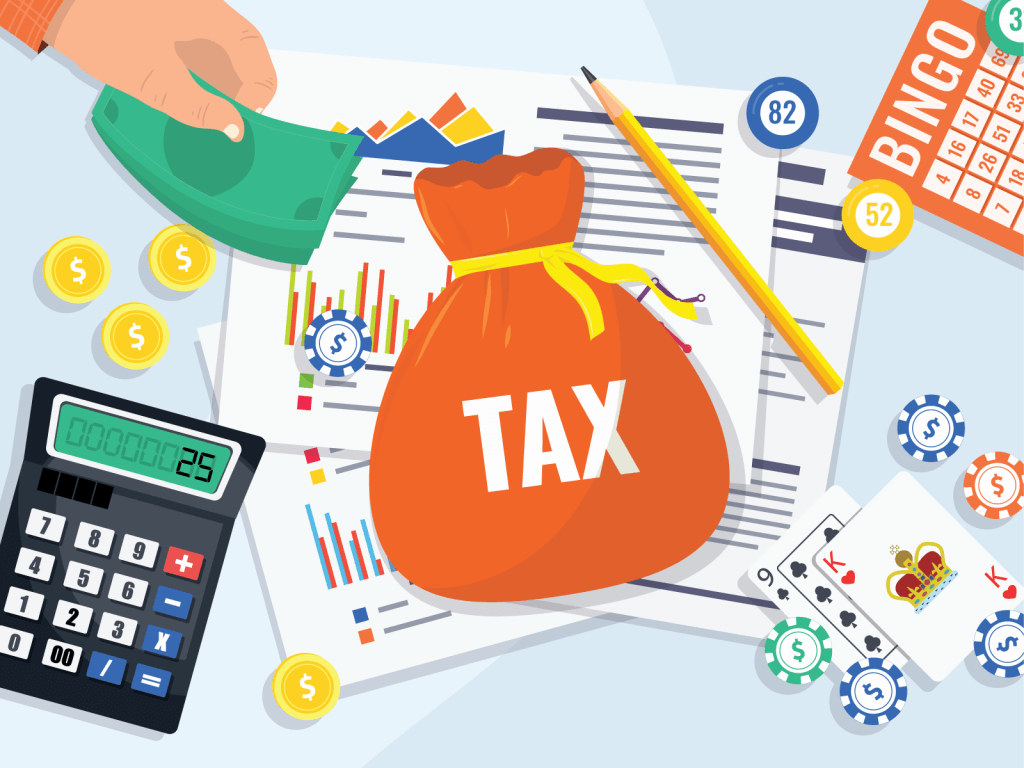Gambling Winnings Tax South Africa

Gambling Tax in South Africa Lottery winnings. Lottery wins are not included in an individuals taxable income and are generally exempt from taxes. You would need to declare the winnings to Sars however. They won’t tax it but they’d like to know about it! Gambling winnings. We’re sure this is the reason why you are here. The Highs and Lows: Gambling Winnings Tax. There is a huge disparity in the quantity of tax collected across legal gambling jurisdictions. In some countries, punters can expect to lose up to 10% of their winnings to the taxman, whereas in other countries this can be between 1-3%. As well as being able to tax gambling companies and winnings, the Government was able to regulate gambling, roll out uniform standards and distribute gambling licences. The 1996 Act also created a single South African national lottery – the same one that’s been going on ever since.
It is very likely you as a bettor after cashing out your wins from betting sites may have thought about paying tax on the money you made especially if it is huge.

- The South African government has at various times adopted an inconsistent approach to online gambling and the associated tax issue. There are examples of ministers and officials indicating that tax should be paid on their winnings by all gamblers.
- Cape Town - Those who rake in gambling winnings of over R25 000, including payouts from the National Lottery, will from next year have to pay a 15 percent withholding tax, the Minister of Finance Pravin Gordhan announced in his Budget Speech on Wednesday.
Having this kind of thought shows you are sane and have the good of your country at heart, it shows you want to remain within the ambit of the law regarding everything you do.

In South Africa where betting and gambling is gaining grounds and citizens making money off their bets, you might be wondering if the tax should be paid.
Well, the truth is bettors are not expected to pay tax on the money they made off their bets and gambling.
You may be wondering why since it is an income on the part of the bettor.
Well, in South Africa, in most cases, bet winnings, as well as gambling, lottery winnings and competition winnings, are exempted from tax.
This is because betting games are seen as a hobby or a leisure pastime, rather than a profit-making venture.
Whether you hit a jackpot or rake in a small amount in terms of winning, no tax is expected to be paid. Whatever you win is yours to keep, every dime goes into your account.
This applies to whether you bet online or do so at a casino location offline.
While bettors are not expected to pay tax, Casinos and bookmakers, on the other hand, are required to pay tax either in South Africa or in the country in which they are licensed and based.

This brings us to the conclusion that while South African players are exempted from paying any tax on their winnings, the responsibility falls instead on the casino operators themselves.
The legislation around South African internet casinos and another medium of making money online are still being debated, there are chances there could be changes in future. Bettors should make good use of the present situation.
Related
Gambling Winnings Tax South Africa 2020
In 2019, gambling revenue in South Africa reached a staggering R30 billion. That was up from R26.3 billion just three years earlier, suggesting that gambling of all kinds is not only alive and well in the country – it’s also growing at an incredible rate.
The gambling industry in South Africa comprises the National Lottery, sports betting, slot machines (including South Africa kingdom slots), bingo, and casinos. In fact, the casinos are so popular that they account for 72% of all industry revenue. The Lottery is also a firm favourite in South Africa, with an estimated 80% of the population buying a ticket at least once a week!
However, this hasn’t always been the case. The history of gambling in South Africa has been shaped by different laws and regulations stretching back to the 1600s. This post will explore these laws to answer the question: when was gambling legalised in South Africa?
The 1600s to the 1800s
As early as 1673, the first South African gambling laws were introduced. These were heavily restrictive, prohibiting gambling in all its forms. For over 100 years, these laws went largely unchallenged – but when the elite classes began to breed horses in the mid-1700s, it fuelled demand for competitive horse races, with bets places on the winners.
The country’s first officially recorded horse race took place at Green Point Common in Cape Town in 1797. Although betting on the outcome was technically still against the law, historians have widely assumed that a great number of the spectators placed illegal bets regardless. This no doubt contributed to the fact that betting on horse racing was legalised in the 1800s, making it the first – and, for over 150 years, the only – legal form of gambling in South Africa.
The Gambling Act of 1965
Although gambling laws all over the world started to relax towards the mid-to-late 1900s, South Africa’s Gambling Act of 1965 simply reinforced the earlier laws of 1673. The Act outlawed all forms of gambling, with the exception of betting on horseracing which was considered a type of sport.
However, it apparently failed to act as a serious deterrent. Between the 1970s and 1990s, as many as 2,000 illegal casinos began operating throughout South Africa. With illegal and underground gambling comes a range of problems. As well as being non-regulated, there is no way of the Government taxing the money generated by underground activity.
Gambling Winnings Tax South Africa Gauteng
The National Gambling Act of 1996
In 1994, the 1965 Act was officially overturned and new laws legalised all forms of gambling. Just two years after the laws of 1994, the National Gambling Act of 1996 introduced regulations to control the licensing of casinos, including the establishment of the National Gambling Board.
The formation of the National Gambling Board allowed many of the problems that came with illegal gambling to be eradicated. As well as being able to tax gambling companies and winnings, the Government was able to regulate gambling, roll out uniform standards and distribute gambling licences.
The 1996 Act also created a single South African national lottery – the same one that’s been going on ever since.
2000 to the Present
In 2004, a second National Gambling Act overrode the Act of 1996. This outlawed the use of online casinos, which were rapidly growing in popularity. Subsequent laws went back and forth on this issue, culminating in the draft of the Remote Gambling Bill of 2014.
This bill attempted to introduce regulations and licensing to control online gambling. The topic has been debated ever since – but so far, no law has explicitly legalised accessing online casinos or other gambling services remotely.

From the laws of 1673 to the present day, the legalisation of gambling in South Africa has happened over time. Will online gambling soon be legal too?